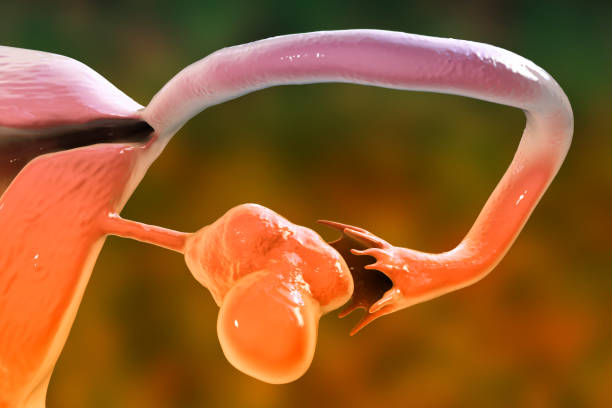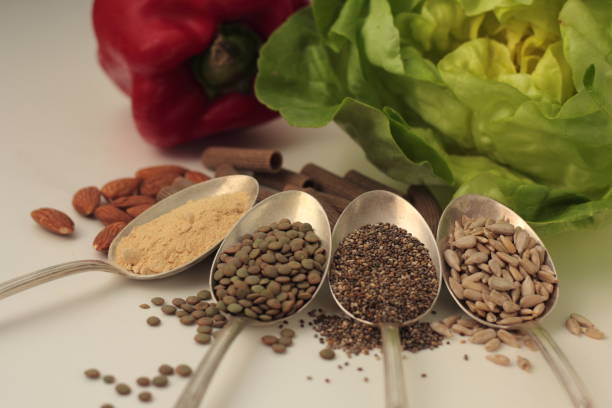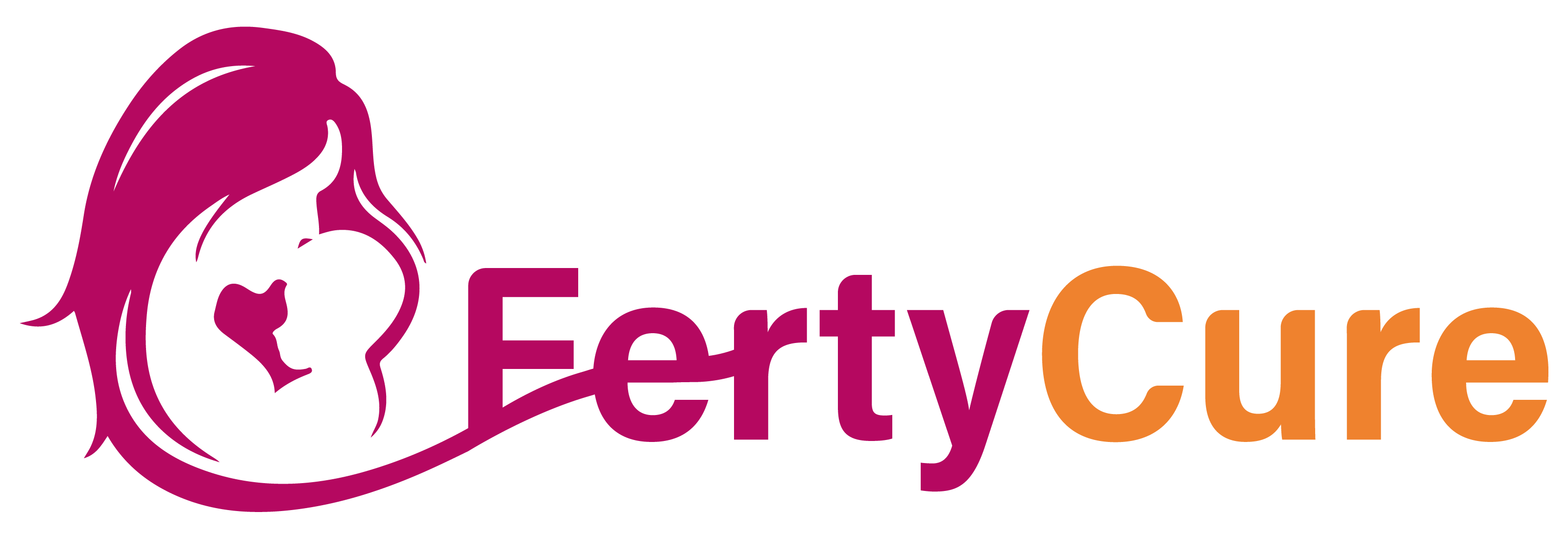Table of Contents
Pregnancy with PCOS: A Comprehensive Guide & Solutions
Polycystic Ovary Syndrome, commonly known as PCOS, is a complex hormonal disorder that affects many women of reproductive age. It can lead to various health challenges, including difficulties in achieving pregnancy with PCOS. If you’re struggling with PCOS and aiming to start a family, this comprehensive guide is here to provide you with valuable insights, strategies, and solutions to increase your chances of achieving pregnancy with PCOS.

Related Article: Exclusive: One Simple Trick for PCOS Management!
What is PCOS?

Polycystic Ovary Syndrome (PCOS) is an endocrine condition marked by the presence of enlarged ovaries housing small cysts. These cysts are not harmful but can lead to hormonal imbalances. Symptoms of PCOS include irregular periods, excessive hair growth, acne, and weight gain.
How Does PCOS Affect Fertility?
PCOS can disrupt the menstrual cycle, leading to irregular ovulation or even anovulation (lack of ovulation). Ovulation is crucial for conception, as it releases a mature egg from the ovary, which can be fertilized by sperm. The absence of regular ovulation can significantly reduce the chances of getting pregnant.
The Link Between Insulin Resistance and PCOS
Insulin resistance is often associated with PCOS. When the body becomes resistant to insulin, it produces more insulin to maintain normal blood sugar levels. This can lead to an increase in androgen production (male hormones) by the ovaries, further contributing to hormonal imbalances and fertility issues.
Preparing for Pregnancy with PCOS
Consultation with a Healthcare Professional
If you’re planning to conceive with PCOS, it’s essential to consult a healthcare professional, preferably a reproductive endocrinologist. They can perform necessary tests to assess your hormonal levels, ovarian function, and overall health. This information will guide them in creating a personalized fertility treatment plan.
Related Article: 5 Hidden PCOS Symptoms: Do You Have Them?
Lifestyle Modifications

Implementing alterations to one’s lifestyle plays a pivotal role in the management of PCOS and the enhancement of fertility. Regular exercise, stress reduction techniques, and maintaining a healthy weight can positively impact hormonal balance and ovulation.
Related Article: 10 Shocking PCOS Facts You Don’t Know
Importance of a Balanced Diet

A well-balanced diet is vital for managing PCOS and enhancing fertility. Direct your attention towards the consumption of whole grains, lean sources of protein, beneficial fats, and a diverse range of fruits and vegetables. Steer clear of sugary and processed edibles, as they have the potential to worsen insulin resistance.
Optimizing Reproductive Health
Tracking Ovulation Cycles
Monitoring your menstrual cycle and tracking ovulation can increase your chances of getting pregnant. There are various methods to predict ovulation, such as basal body temperature charting, ovulation predictor kits, and monitoring cervical mucus changes.
Managing Irregular Menstrual Cycles
If you experience irregular periods due to PCOS, your healthcare provider may prescribe medications to regulate your menstrual cycle. This can help induce ovulation and improve your chances of conception.
Importance of Maintaining a Healthy Weight

Maintaining a healthy weight is essential for managing pregnancy with PCOS. Excess body weight can exacerbate insulin resistance and hormonal imbalances. Even a modest weight loss can have a positive impact on ovulation and overall reproductive health.
Medical Interventions for PCOS and Fertility
Ovulation Induction Medications
For women with PCOS who struggle with irregular ovulation, ovulation induction medications such as Clomiphene citrate or Letrozole may be prescribed. These medications stimulate the ovaries to release eggs and increase the chances of conception.
In-Vitro Fertilization (IVF)
In cases where other treatments have not been successful, in-vitro fertilization (IVF) can be an option. IVF encompasses the process of fertilizing eggs externally and subsequently introducing the developed embryos into the uterine cavity. This method bypasses some of the challenges posed by PCOS-related fertility issues.
Laparoscopic Ovarian Drilling
Laparoscopic ovarian drilling is a surgical procedure that can be considered in cases where medications and other treatments have not been effective. During the procedure, small holes are made in the ovaries using heat or laser to stimulate ovulation.
Natural Remedies and Lifestyle Changes
Herbal Supplements and Their Efficacy

Some herbal supplements, such as cinnamon, inositol, and chaste berry (Vitex), have shown promise in improving insulin sensitivity and hormonal balance in women with PCOS. However, it’s essential to consult your healthcare provider before using any supplements.
Stress Management Techniques

Chronic stress can worsen hormonal imbalances. Engage in stress-reduction techniques such as mindfulness meditation, deep breathing exercises, and yoga to support your overall well-being and fertility.
Regular Exercise and Its Benefits

Physical activity can help regulate insulin levels, improve ovulation, and promote weight management. Aim for at least 150 minutes of moderate-intensity exercise per week to reap these benefits.
The Role of Diet and Nutrition
Low Glycemic Index Foods
Focusing on foods with a low glycemic index can help stabilize blood sugar levels and improve insulin sensitivity. Opt for whole grains, legumes, lean proteins, and non-starchy vegetables to support your fertility journey.
Importance of Omega-3 Fatty Acids

Omega-3 fatty acids have anti-inflammatory properties and can support hormonal balance. Include sources of omega-3s, such as fatty fish (salmon, mackerel), flaxseeds, and walnuts, in your diet.
Avoiding Processed and Sugary Foods

Processed foods and sugary snacks can lead to rapid spikes in blood sugar levels, contributing to insulin resistance. Limit your consumption of these foods and opt for whole, nutrient-dense choices instead.
Support and Emotional Well-being

Joining Support Groups
Connecting with others who are experiencing similar challenges can provide emotional support and a sense of community. Online or in-person support groups can be valuable resources for sharing experiences and advice.
Psychological Impact of Infertility
Dealing with the challenges of infertility can have a significant impact on your emotional state and overall well-being. It’s important to acknowledge your feelings and consider seeking professional counseling if needed to navigate the emotional aspects of your fertility journey.
Seeking Professional Counseling
Therapeutic support can help you manage the stress, anxiety, and depression that often accompany fertility challenges. A mental health professional with experience in fertility-related issues can provide coping strategies and guidance.
Alternative and Complementary Therapies
Acupuncture and its Effects on Fertility

Some studies suggest that acupuncture may help improve ovarian function and increase blood flow to the reproductive organs. While more research is needed, acupuncture can be considered as a complementary therapy alongside medical treatments.
Yoga and Relaxation Techniques

Yoga and relaxation practices can promote overall well-being and reduce stress. Engaging in gentle yoga poses, deep breathing exercises, and mindfulness meditation can contribute to a positive mindset during your fertility journey.
Chiropractic Care for Hormonal Balance

Chiropractic adjustments are believed by some to help support hormonal balance and improve reproductive health. Consult a qualified chiropractor with experience in fertility-related concerns if you’re considering this approach.
Success Stories and Inspirational Journeys
Real-life Testimonials
Reading about the experiences of other women who have successfully conceived pregnancy with PCOS can provide hope and inspiration. Many women have overcome challenges to achieve their dream of parenthood.
Overcoming Challenges and Obstacles
The journey to pregnancy with PCOS may have its ups and downs. Remember that each person’s path is unique, and while challenges may arise, there are numerous strategies and treatments available to support your goals.
Maintaining Hope and Resilience
Maintaining a positive outlook and cultivating resilience is essential throughout your fertility journey. Surround yourself with supportive individuals, stay informed, and remain open to exploring different options.
Conclusion
Embarking on the journey to achieving pregnancy with PCOS requires dedication, patience, and a comprehensive approach. By understanding the impact of PCOS on fertility, making lifestyle modifications, considering medical interventions, and exploring alternative therapies, you can enhance your chances of conceiving and starting a family.
Incorporating a balanced diet, managing stress, and seeking emotional support are vital components of this journey. Remember that your path is unique, and with the right strategies and mindset, you can overcome challenges and work towards your goal of parenthood.
FAQs
Can women with PCOS get pregnant naturally?
Yes, women with PCOS can conceive naturally, although it might require additional efforts such as tracking ovulation and making lifestyle changes.
Is weight loss necessary for improving fertility with PCOS?
Weight loss can have a positive impact on hormonal balance and ovulation, but it's not the only factor. Consult an expert for personalized guidance.
Are there any specific foods to avoid when trying to conceive with PCOS?
It's advisable to limit processed foods, sugary snacks, and foods with a high glycemic index. Opt for whole, nutrient-rich foods instead.
Can herbal supplements alone treat PCOS-related fertility issues?
Herbal supplements can be beneficial, but they should be used as part of a comprehensive treatment plan under the guidance of a healthcare provider.
Is in-vitro fertilization (IVF) the only option for women with PCOS struggling to conceive?
IVF is one of the options, but there are other treatments like ovulation induction medications and lifestyle changes that can also be effective.
